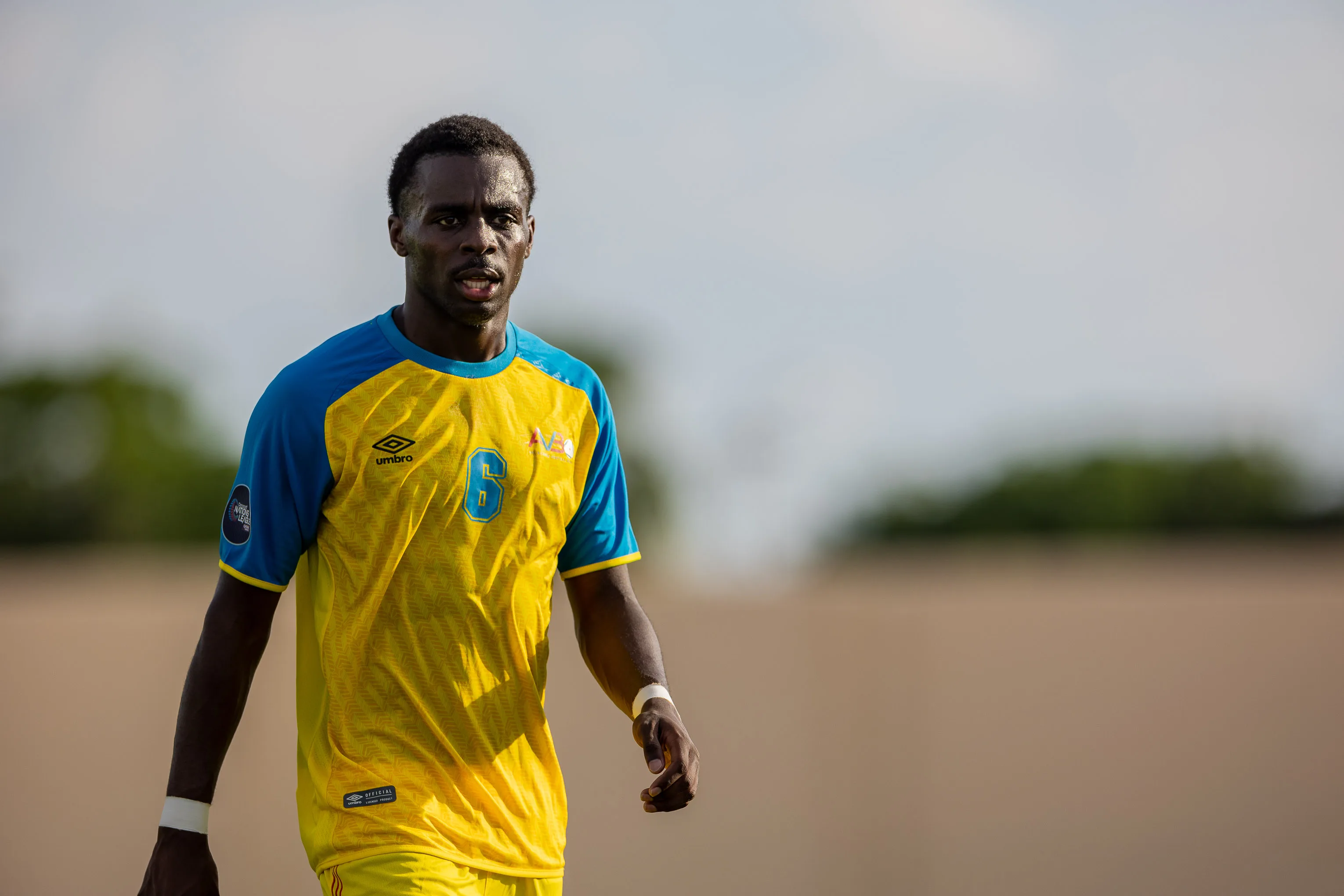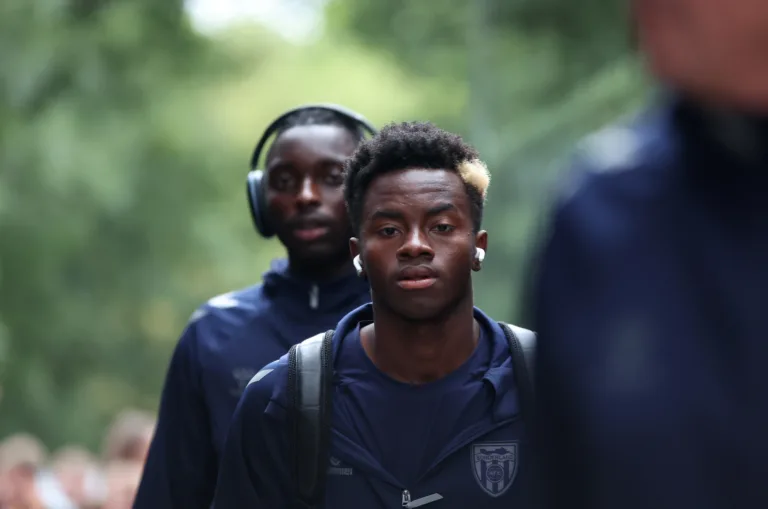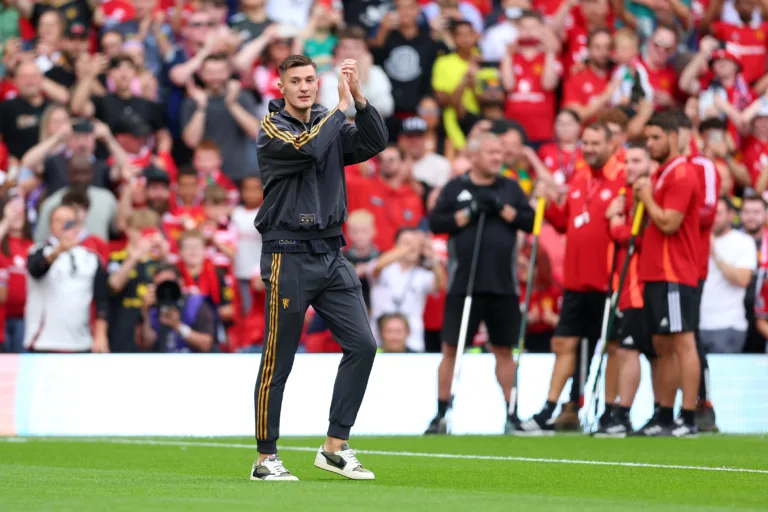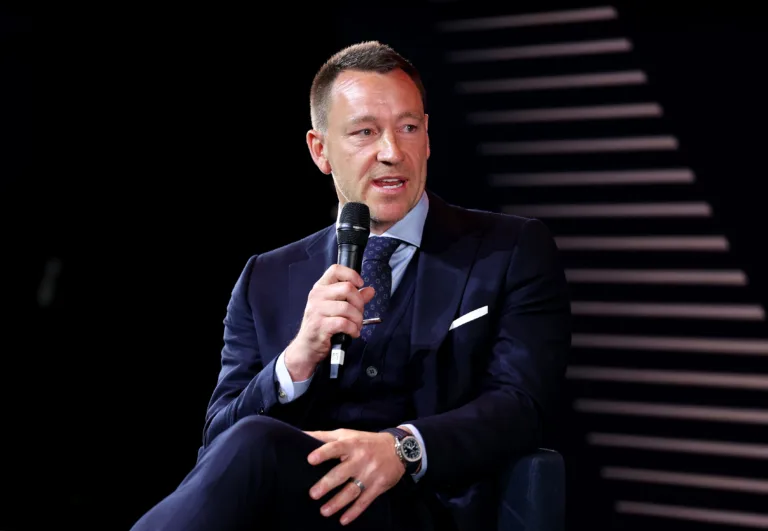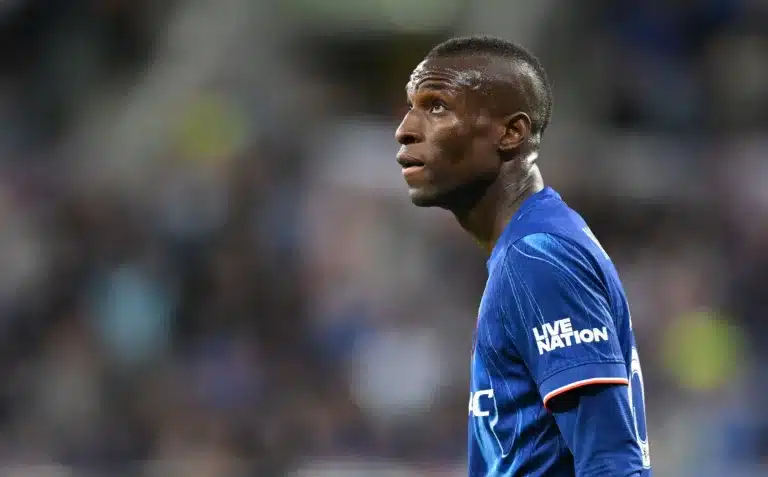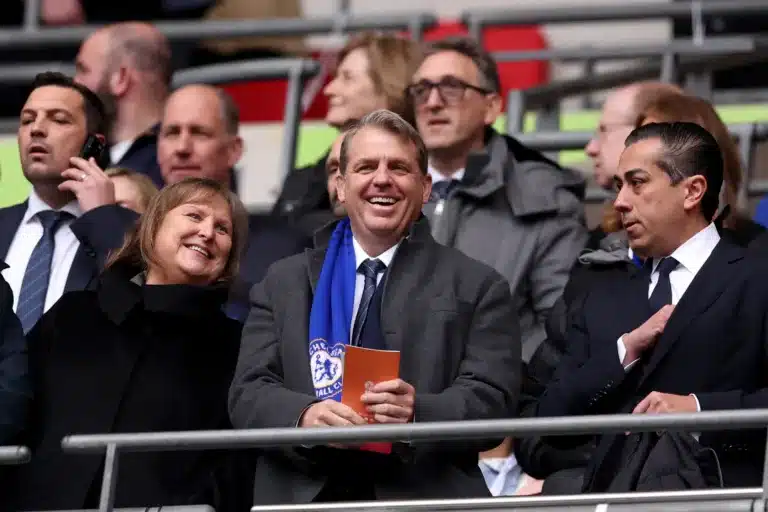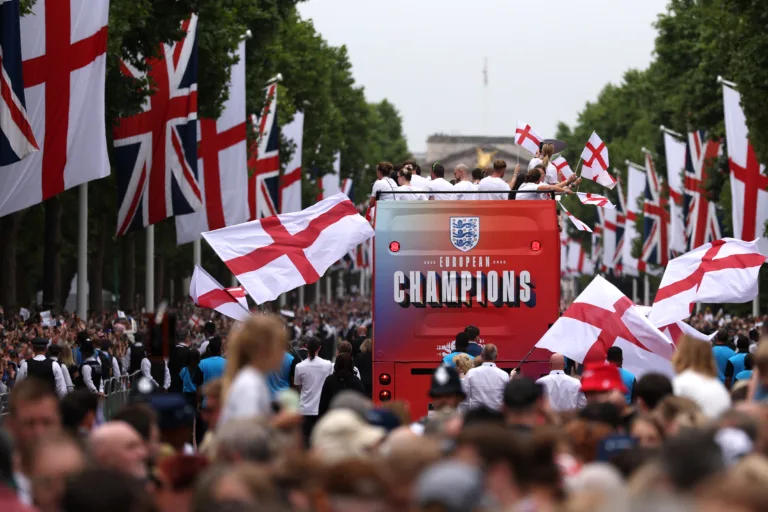Roviën Ostiana: Aruba’s Record Scorer Aiming for Return to the UK
You don’t often meet a 23-year-old with the kind of composure and clarity Roviën Ostiana carries. Then again, not many 23-year-olds have already written their names into their own country’s football history books.
Roviën Ostiana is Aruba’s all-time leading goalscorer, a feat he achieved before many players his age have even broken into a senior squad. Yet when he sits down to talk about it, there’s no trace of arrogance. Just a quiet sense of pride and a relentless hunger for more in his young career.
Ostiana was raised in the Dutch football system and sharpened by spells at Brentford, QPR, and Cambridge United, Ostiana’s path has already taken him across continents. Now playing in the Netherlands, he’s preparing for his next move, one he hopes will bring him back to England, where there’s still a sense of unfinished business.
In this exclusive interview with Attacking Football, Ostiana opens up about representing his island nation, scoring historic goals, coping with loss, and why the next few years could be defining for both himself and Aruban football.
The Interview
Roviën, thanks for speaking with us. To start, how does it feel to be Aruba’s all-time leading goalscorer at only 23 years old?
Roviën: Thank you; it’s honestly a huge honour. To be Aruba’s all-time leading goalscorer at 23 is something I never imagined this early in my career. I feel incredibly proud, but also really grateful to my teammates, the coaching staff, and everyone who’s believed in me. Every goal has been part of a bigger team effort, and representing my island will always be something I cherish. This is just the beginning, though. I still feel like I have so much more to give.
Can you take us back to that first call-up? How did it come about, and what was going through your head when you pulled on the national shirt for the first time?
Roviën: I’ll never forget that moment. I was 21 when I got the call totally unexpected. I had been playing well at club level, playing for FC Volendam at the time, but to hear that the national team was interested felt surreal. I remember getting the message and just sitting there for a minute, trying to process it. Then I called my mum right away; she was so proud.
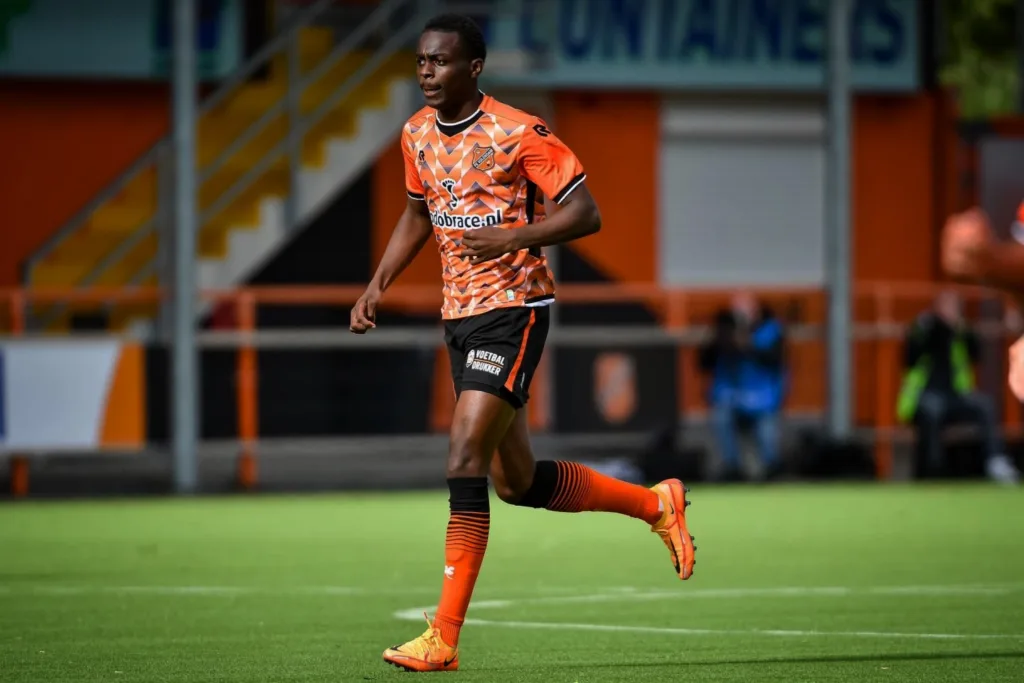
Putting on the national shirt for the first time… man, that gave me chills.
Standing there, hearing the anthem, knowing I was representing my island, it was emotional. I felt this mix of pride, nerves, and pure adrenaline also for the people that always believed in me – my great grandmother and my good friend Caldrich who both passed away – who always said that this moment was going to come, and it did, and I felt their presence. From that moment on, I knew I wanted to give everything I had for Aruba every time I stepped on the pitch.
Rovien Ostiana On Aruba and the National Team
For those unfamiliar with Aruban football, how would you describe the football culture there — and how has it evolved during your time with the squad?
Roviën: Aruban football has always had passion that’s never been in question. The island lives and breathes the game, even if we’re small. Growing up, you’d see kids playing in the streets, using rocks as goalposts. That love for football is deep in our culture.
But over the past few years, especially since I joined the national team, I’ve seen real progress. The level of professionalism is growing with better coaching, more structure, and players getting experience abroad. There’s also a stronger belief now. We’re not just showing up to participate; we’re trying to compete, to win, to represent Aruba with pride on the international stage. It’s still a journey, but you can feel the shift happening.
The team has seen strong results lately — including a draw with Barbados and wins in the Nations League. What’s the mood like in the squad right now?
Roviën: The mood is really positive right now. We’ve built a strong sense of belief in the squad, not just in our individual abilities, but in each other. Getting results like the draw against Barbados and those Nations League wins showed that all the work we’ve been putting in is paying off.
There’s a real hunger in the group. Everyone’s pushing each other in training, and there’s a shared mindset that we’re building something bigger than ourselves. We’re proud of what we’ve done so far, but we also know we’re just getting started. The energy in the group is focused, ambitious, and united.
There’s a growing number of players with Dutch backgrounds committing to Aruba, much like Curaçao did a few years back. Do you think this model can take Aruba to the Gold Cup or beyond?
Roviën: Yeah, I think it’s a really smart and exciting direction. There’s so much talent in the Dutch system with Aruban-root players who’ve developed in top academies, who bring a different level of experience and professionalism. If they feel that connection to the island and are willing to commit, it can definitely raise our level as a squad.
We’ve seen what Curaçao achieved by embracing that model, qualifying for the Gold Cup and competing with bigger nations. There’s no reason why Aruba can’t follow a similar path. It’s about building the right structure, creating a strong team culture, and blending local talent with the experience of those abroad. If we keep growing like this, I truly believe the Gold Cup is within reach, and that’s just the beginning.
Club Journey & Youth Career
Looking back, how do you reflect on your time at clubs like Brentford, QPR, and Cambridge United during your youth career? What did you learn in those environments?
Roviën: Those years were massive for me, not just as a player but as a person. Being in environments like Brentford, QPR, and Cambridge United exposed me to a completely different level of football: the intensity, the professionalism, and the daily standards you have to meet. It was tough at times, but that’s where I really learnt discipline, resilience, and what it takes to compete at a higher level.
Each club taught me something different. At Brentford, it was about structure and attention to detail. QPR gave me more freedom to express myself, and at Cambridge, I really had to fight for my place; it made me mentally stronger. Even though I didn’t break through to the first team, those experiences shaped me. They gave me the foundation I needed when I came back to represent my island and they still drive me every day.
After returning to the Netherlands, you played for Kozakken Boys, Jong Volendam, and now RKAVV. What did that spell in Dutch football teach you about your game?
Roviën: Playing in the Netherlands really helped me mature as a player. Each club gave me something different, and I think I really started to understand who I am on the pitch during that period. At Kozakken Boys, I learnt how to handle the physical side of senior football — it’s a tough league, and you have to grow up fast. Jong Volendam gave me the chance to sharpen my technical side again, and being part of a professional setup helped me stay sharp and focused.
On a potential Return to England
You recently posted that you’re ready to return to the UK. What’s driving that move now — and what kind of club or project are you hoping to join?
Roviën: Yeah, that post came from a real place of hunger. I’ve grown a lot over the past few years on and off the pitch and I feel ready to test myself at a higher level again. The UK has always felt like unfinished business for me. I’ve experienced the football culture there; I know what it demands, and I believe I’m in a much better place now to make an impact.
I’m looking for a club or project that believes in attacking football and that values work ethic and ambition. Whether it’s a team pushing for promotion or one building something from the ground up, I want to be part of a competitive environment where I can contribute, grow, and help win games. More than anything, I’m just ready to give everything and show what I’m really capable of.
Have there been any concrete offers or conversations yet?
Roviën: I’ve had some encouraging conversations; yes, nothing finalised yet, but interest is definitely there. I’m keeping my options open and staying focused on training and performing well with TOGB in the meantime.
I believe the right opportunity will come at the right time. For now, it’s about staying ready and making sure when that call comes, I’m prepared to step up and deliver.
What would be your ideal level or league to play in back in England — are you open to National League sides or pushing for a League Two or One opportunity?
Roviën: I’m definitely open to National League clubs if it’s the right project. Sometimes a strong, ambitious National League side can offer a real platform to showcase my abilities and help push for promotion. Ultimately, it’s about finding a club where I can play regularly, make an impact, and be part of something exciting.
Playing Style & Aspirations
How would you describe your playing style to someone who’s never seen you play? What are your main strengths?
Roviën: I’m a midfielder who blends physical strength with precise passing. I’m comfortable winning duels and using my power to hold my ground in tight situations. At the same time, I have good vision and technique, which lets me distribute the ball effectively and help control the tempo of the game.
I like to be involved in both defensive and attacking phases, breaking up opposition play, then quickly transitioning the ball forward with accurate passes. My goal is to be the engine in the midfield, connecting the team and creating opportunities while also making sure we stay solid defensively.
Is there a player you model your game after or someone fans might compare you to?
Roviën: Yeah, I’d say John Stones is someone I really look up to. His combination of power, composure, and excellent passing really stands out to me. Like him, I try to use my physical strength to win challenges but also stay calm on the ball and make smart, precise passes to help build play from the midfield.
He’s a player who brings balance to the team, and that’s something I aim for in my own game, being reliable defensively but also contributing to the attack when I can.
You’ve played as a defensive midfielder, central midfielder, and centre-back — which role do you see yourself flourishing in at the next level?
Roviën: I see myself flourishing as a defensive midfielder at the next level; that’s where I’m at my best. I really enjoy that role because it lets me combine my physicality with my ability to read the game and distribute the ball.
Being in front of the defence, I can break up play, protect the backline, and start attacks with good passing. It’s a position that demands a lot of focus and discipline, and I feel like I bring that every time I step on the pitch.
Looking forward, what are your personal aspirations for the next 2–3 years, both at club level and internationally?
Roviën: Looking ahead, my main goal is to keep scoring goals for the national team, especially in League C next year. I want to continue making a real impact for Aruba and help us achieve strong results on the international stage.
At club level, I’m focused on getting back to England and joining a full-time program where I can really show what I’m capable of. I want to contribute consistently, help the team win matches, and ultimately push for promotion or league titles. It’s about growth, performance, and helping the team succeed; that’s what drives me every day.
Quickfire Round
Most memorable goal for Aruba?
Roviën: I’ve got two that really stand out, both against the Virgin Islands. The first was at home, and it was special because I became the first player to score in our new national stadium. That goal wasn’t just personal; it felt historic for the island. To score in front of our fans, in that setting, was something I’ll never forget.
The second one was in the away match, a goal from the halfway line. As soon as I saw the keeper off his line, I went for it, and it flew in. It was one of those moments where everything just clicks. Definitely the best strike of my career so far. Both goals mean a lot to me for different reasons, but they remind me why I love representing Aruba so much.
Toughest opponent you’ve faced so far?
Roviën: Frantzdy Pierrot, a Haitian professional footballer who plays as a forward for Greek Super League club AEK Athens and the Haiti national.
Favourite stadium you’ve played in?
Roviën: National Olympic stadium in Phnom Penh, Cambodia
Dream club to sign for?
Roviën: Ajax
One teammate from Aruba you think people should watch out for?
Roviën: Kymani Nedd, who is currently at Excelsior, is in their U21 side.
How to Get in Touch With Rovien
If you’re a club looking for a hardworking, technically sharp midfielder with international experience, Roviën is open to opportunities and conversations. He’s keen to return to the UK and test himself in a competitive setup again, whether that’s in the National League or higher up the pyramid.
If you’d like to get in touch with him directly, you can reach out via Twitter at @6Rexii or via his LinkedIn profile.


